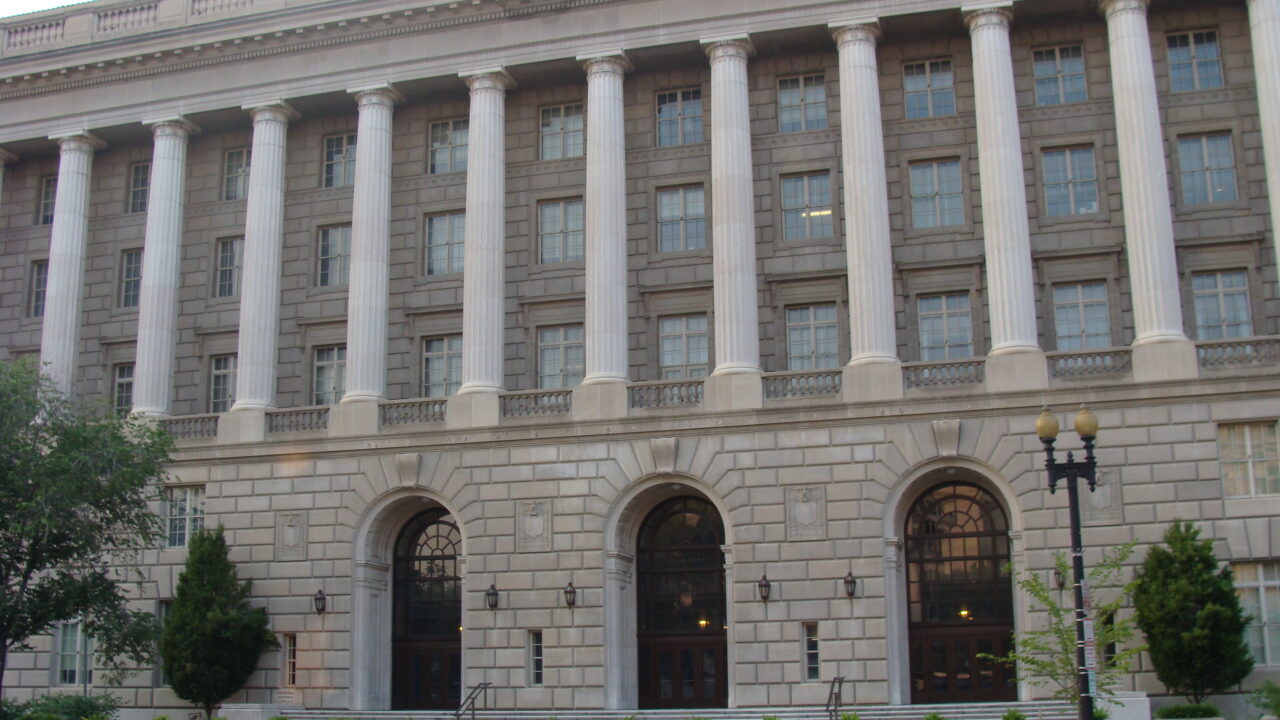 “IRS” by S.E.B. is licensed under CC BY-NC 2.0
https://www.flickr.com/photos/brendel/2677184232/in/photolist-55zgAQ-2kt6Y8L-7XU9K8-fhSrLy-2kt2PfE-2kt6xeS-2vFXrN-2jp9yeJ-2gC5WB8-4jJwj5-d8cmD-4jF3Ma-FX1CCC-eTw5RV-bgfFKc-Nqd7gn-NuL6VE-5Poc1j-MzXUB8-a3ZBgm-2omETA-Nqd6Zk-a1brDE-7UCtWs-5yiX63-68LUr7-7sjZGe-eTvkjr-cAeB9-93T2BH-izisv-6qKpTb-eTH4UY-eTvu8a-4t6JfP-7SsSTv-eTH21h-5JRBA-eTw8QD-4YsWoG-masxTs-ui8VQs-r7qTJu-2mMo1pu-mnnL7y-7TTV8a-d3RbF-dpy5ho-eTvLNR-eTHkdm
“IRS” by S.E.B. is licensed under CC BY-NC 2.0
https://www.flickr.com/photos/brendel/2677184232/in/photolist-55zgAQ-2kt6Y8L-7XU9K8-fhSrLy-2kt2PfE-2kt6xeS-2vFXrN-2jp9yeJ-2gC5WB8-4jJwj5-d8cmD-4jF3Ma-FX1CCC-eTw5RV-bgfFKc-Nqd7gn-NuL6VE-5Poc1j-MzXUB8-a3ZBgm-2omETA-Nqd6Zk-a1brDE-7UCtWs-5yiX63-68LUr7-7sjZGe-eTvkjr-cAeB9-93T2BH-izisv-6qKpTb-eTH4UY-eTvu8a-4t6JfP-7SsSTv-eTH21h-5JRBA-eTw8QD-4YsWoG-masxTs-ui8VQs-r7qTJu-2mMo1pu-mnnL7y-7TTV8a-d3RbF-dpy5ho-eTvLNR-eTHkdm
The IRS still wants to snoop on your bank account.
Following fierce backlash, the Biden Administration has walked back proposals to have the IRS monitor all financial account transactions over $600 a month, or monitor accounts with $10,000 in annual inflows and outflows.
These are just a few of the proposals that would boost the IRS’ reach. The latest dystopian idea being a plan from the agency to scan taxpayer’s faces. There is no reason to believe they’ve abandoned these stalled plans.
Further, as ATR’s Alex Hendrie highlights in The Hill, they’ve already succeeded in empowering the agency to go after independent contractors:
“Already, the left has increased tax complexity for any self-employed American or those working as independent contractors or freelancers. This new requirement was passed into law through Biden’s $1.9 trillion COVID-19 relief package and reduced the threshold at which taxpayers had to file a 1099-K form from $20,000 in payments and 200 transactions to just $600 in total transactions.”
Fortunately, states are fighting back.
A resolution opposing the IRS snooping plan was filed last year in Texas by Rep. Mayes Middleton. This session, a version of this resolution sponsored by Rep. Bob Rommel has advanced in the Florida legislature. Indiana Senator Erin Houchin introduced the resolution in the Hoosier State.
All three legislators chair the Taxpayer Protection Caucus in their respective states and legislative chambers. The Taxpayer Protection Caucus consists of legislators who have signed the Taxpayer Protection Pledge opposing tax hikes. Two more resolutions were also introduced in Maine and Arizona by State Representatives John Andrews and Shawnna Bolick respectively.
As the language in these resolutions points out, not only would compiling this data be incredibly costly to the financial institutions reporting it, but it also threatens the privacy of both individuals and small businesses. For example, last year ProPublica ran an article containing tax return data from a massive leak in the IRS. So far, the guilty parties have neither been identified nor punished. The IRS is either unable or unwilling to properly protect people’s personal data.
The Florida resolution concludes by saying, “the Biden administration’s tax increase proposal fails to consider cybersecurity risks and unjust burdens on law abiding citizens, financial institutions, and small businesses, and the United States Congress should oppose this unprecedented intrusion into the privacy rights of Americans.”
These states are not alone, more are likely to join this effort, though legislative chambers controlled by Democrats may block resolutions. Others have also criticized the IRS’ war on privacy.
John Kinsella, the American Bankers Association vice president for tax policy, condemned the Biden plan saying, “If there are opaque sources of revenue, let’s focus on addressing that challenge head-on rather than over-collecting information from everyone in the hope that it shines a light on a small number of tax cheats.”
The IRS claims they simply want to prevent wealthy Americans and corporations from committing tax fraud. However, their solution is to create a surveillance state and spy on small businesses and individuals to hunt down every penny they can tax. “This (account monitoring) proposal would hit an estimated 87 million Americans earning less than $400,000 per year and could hit up to 134 million Americans under this income threshold,” Hendrie adds.
This proposal also sets a dangerous precedent. The IRS has already expressed interest in monitoring transactions of $600. If they can search larger banking transactions for supposed fraud, why not the smaller ones? Florida is right. More states should join in condemning this blatant intrusion on people’s privacy.

